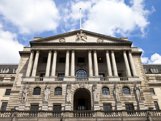Carte Blanche for Investors: Golden Visas in Southern Europe
 In 2008, a financial crisis began in Europe. The problems in the economy affected the state of local real estate markets: the volume of investments decreased, real estate prices fell by 20–40%. In order to stimulate capital inflows from abroad, some countries in southern Europe have launched “golden visa” programs: Greece, Spain, Cyprus, and Portugal have started to issue residence permits to foreign investors in exchange for investments in the economy of their country. Malta, where such a program has been operating since 1988, has made conditions for investors more flexible. Although programs for obtaining a residence permit offer investments in various types of assets: real estate, business, government bonds, bank deposits or funds, houses and apartments remain the most popular object of capital investment.
In 2008, a financial crisis began in Europe. The problems in the economy affected the state of local real estate markets: the volume of investments decreased, real estate prices fell by 20–40%. In order to stimulate capital inflows from abroad, some countries in southern Europe have launched “golden visa” programs: Greece, Spain, Cyprus, and Portugal have started to issue residence permits to foreign investors in exchange for investments in the economy of their country. Malta, where such a program has been operating since 1988, has made conditions for investors more flexible. Although programs for obtaining a residence permit offer investments in various types of assets: real estate, business, government bonds, bank deposits or funds, houses and apartments remain the most popular object of capital investment.
The launch of the programs brought results: Thousands of foreigners took advantage of the opportunity to get a residence permit for investments, having invested billions of euros in the real estate markets of Southern Europe. The interest of buyers from abroad, together with other factors, supported the rise in prices per square meter.
House price index before and after the introduction of the golden visa programs
The most popular program in Southern Europe is the “golden visa” of Portugal: from its launch until the end of May 2018, Portuguese received nearly 6.3 thousand foreigners, investing 3.8 billion euros in the Portuguese economy.
“Golden Visa” – freedom for money
Golden Visa programs allow you to obtain resident status for any foreigner over 18 years of age. Compared to other methods of obtaining a residence permit (based on marriage, work, study, or for the purpose of family reunification), this is a relatively simple and quick procedure: the authorities do not impose requirements on the language or history of the country for applicants, and consideration of documents takes from a couple of weeks to months.
All programs in Southern Europe offer real estate investment as one of the options. In Spain, the minimum cost of the object should be 500 thousand euros, in Portugal – 350 thousand (if it was built more than 30 years ago or is located in the area of urban regeneration). In Malta, it is required to invest both in bonds and in real estate at the same time: 250 thousand euros – in securities and 50 or 60 thousand euros, depending on the location – to rent an object for five years (or purchase – then the amount increases to 270 or 320 thousand) Cyprus offer the issuance of a residence permit in exchange for real estate worth from 300 thousand euros, while the investor must put 30 thousand to deposit in a local bank. The most inexpensive program is offered by Greece: a Greek residence permit can be obtained by purchasing an object at a price of 250 thousand euros.
Minimum expenses for obtaining a golden visa
Under such programs, investors receive a number of important benefits:
the ability to travel without visas in the Schengen countries;
they can live in their home country or where they have received a residence permit: the southern European countries issuing “golden visas” make symbolic requirements for the duration of their stay on their territory or not at all;
if the investor spends in the country that issued the residence permit less than six months, his tax residency remains the same;
The whole family of the investor receives a residence permit: spouses, children, in some countries – the parents of both spouses;
issued by the residence permit are in fact indefinite: they can be extended an unlimited number of times;
purchased objects can be leased: due to the popularity of this region among tourists, such real estate, according to experts of the international real estate broker Tranio, can bring an investor 5–7% per annum.
If the investor really lives in the country that issued the residence permit, after a certain period of time he can apply for citizenship. Cyprus also offers a simpler option: a Cyprus passport can be obtained in a few months by buying property worth from 2 million euros.
Abuse of Freedom
On the other hand, investment residence permit programs can become a loophole for those who are trying to escape from taxes. As stated in the report of the Organization of Economic Cooperation and Development Countries (OECD), since investment residence permit programs do not control the issue of tax residency, this leads to irregularities in reporting within the Common Reporting Standard (CRS) to which EU countries must send data on bank accounts of non-residents to local tax authorities.
The OECD report looks at two examples of possible violations. In the first, a resident of country A can purchase property in country B for 500 thousand euros, get a residence permit and the opportunity to change the tax residency without paying taxes on income received outside of it. Then he will open an account in a bank in country B. Although when opening an account in documents, you need to specify all countries of residence for tax purposes, he will indicate only country B. As a result, bank in country B will not reveal the connection of person with country A and will not exchange financial information with it . In the second case, the investor can receive an investment residence permit and, when opening an account at a local bank, provide utility bills for the object.



